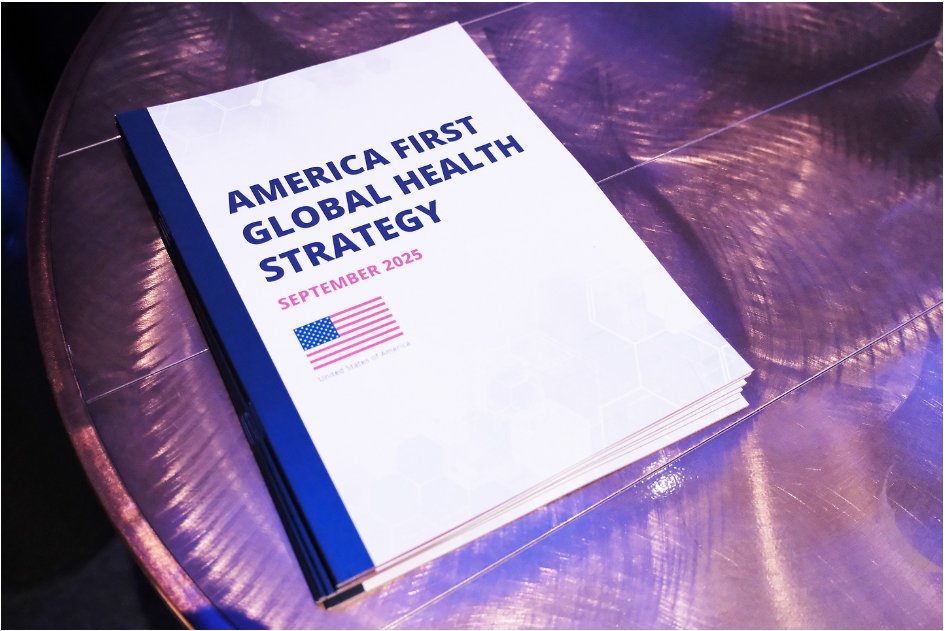The international community looks to the United States to be a champion of partnership, not to reduce global health to a mere tool of geopolitical competition. The choice Washington makes now will echo for generations.

On Sept. 18, as the world grappled with a global health crisis exacerbated by deep cuts in foreign development aid from the United States and some European nations, Washington unveiled its new America First Global Health Strategy. The policy, the culmination of months of internal work and review, arrives at a critical juncture for international relations. Its stated aims are to inject greater accountability and efficiency into the nation’s vast foreign health commitments.
While the pursuit of fiscal prudence and measurable outcomes are laudable goals, the strategy’s fundamental pivot away from multilateralism and toward a fragmented system of bilateral deals has sent ripples of concern through the global health community. This is not merely a procedural adjustment; it is a philosophical departure from decades of consensus, a move that risks unraveling the very fabric of collaboration painstakingly woven to protect our collective well-being. It directly challenges the foundational principle of global health security: that in our interconnected world, no one is safe until everyone is safe.
For generations, our greatest public health triumphs have sprung from collective action, guided by a spirit of shared responsibility. Consider the global fight against HIV/AIDS: While it was spearheaded by America’s landmark President’s Emergency Plan for AIDS Relief, its success was not achieved in a vacuum. It became a truly transformative force by leveraging the infrastructure and expertise of multilateral partners.
Similarly, dramatic reductions in child mortality from malaria and tuberculosis were the result of coordinated action through the World Health Organization, which provides global standards and emergency leadership. They also relied financing bodies such as the Global Fund to Fight AIDS, Tuberculosis and Malaria; and Gavi, the vaccine alliance. This collaborative framework is the bedrock of progress, creating a system that pools resources for maximum impact, shares critical data to prevent outbreaks and mobilizes scientific expertise across borders. It stands as a testament that in public health, the whole is always greater than the sum of its parts.
The new U.S. strategy, however, threatens to undermine this synergistic and time-tested model with a patchwork of disparate agreements. The first and most immediate danger of this approach is the introduction of geopolitical triage into what is not merely a humanitarian issue but an essential responsibility. By prioritizing one-on-one negotiations, Washington risks creating a world of “health allies” and “health orphans” — an environment in which life-saving aid is allocated based on a nation’s strategic alignment and allows its own political and economic considerations to override the interests of global public health. This not only runs counter to the ethical principles of aid but also fosters resentment and instability, leaving vulnerable populations in less-favored nations dangerously exposed and creating reservoirs where new diseases can emerge and eventually threaten everyone.
Further, a retreat from multilateralism creates a critical knowledge deficit. The WHO and its partner networks function as the central nervous system of global health by collecting and analyzing data from every corner of the globe to detect and report on outbreaks. A system of siloed bilateral deals fractures these lines of communication and discourages transparent data sharing. A culture of open scientific exchange is replaced by one with guarded, proprietary information.
The early days of the most recent global pandemic provide a stark reminder that viruses do not carry passports. Our ability to track and defeat them depends entirely on a seamless flow of intelligence. To deliberately dismantle this global surveillance network is a gamble the world cannot afford.
Beyond the immediate risks, this strategic shift could, paradoxically, undermine the long-term goal of self-sufficiency in partner nations. Effective global health programs are not about perpetual charity; they are about capacity-building.
Multilateral initiatives, for all their complexities, often prioritize the strengthening of local health systems — training doctors and nurses, building laboratories and establishing robust supply chains. In contrast, bilateral deals, particularly those tied to the procurement of goods and services from the donor country, risk fostering a cycle of dependency. They can stifle local innovation and create health systems reliant on external technology and resources, rather than empowering nations to stand on their own feet.
As a major contributor to global health, the United States has a legacy to be proud of and a profound responsibility to lead constructively. True leadership in our deeply interconnected 21st-century world is demonstrated not by asserting dominance through unilateral action but by strengthening the systems of global governance that serve as public goods for all. Investing in global health is an act of enlightened self-interest.
The surest way to protect American citizens from the next pandemic is to ensure that every country has a resilient health system capable of detecting and containing a threat at its source. A zero-sum approach is an illusion. In public health, one is only as safe as the most vulnerable member of the global community.
The international community looks to the United States to be a champion of partnership, not to reduce global health to a mere tool of geopolitical competition — an exclusionary ideology that was proved inadequate by the COVID-19 pandemic. The choice Washington makes now will echo for generations. It can be an architect of a more resilient and cooperative global health future, or it can be the agent of its fragmentation.
We hope that Washington will calibrate its new strategy to reinforce, rather than relinquish, the spirit of global solidarity. The health and security of the entire world may well depend on it.
